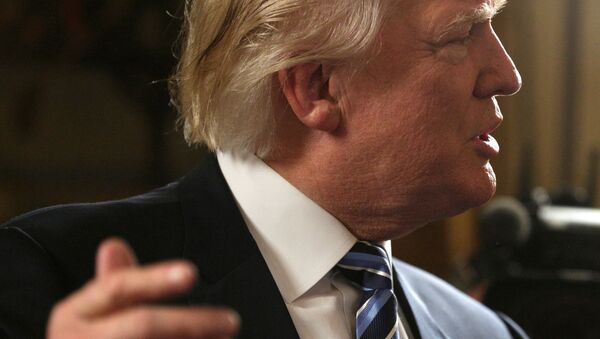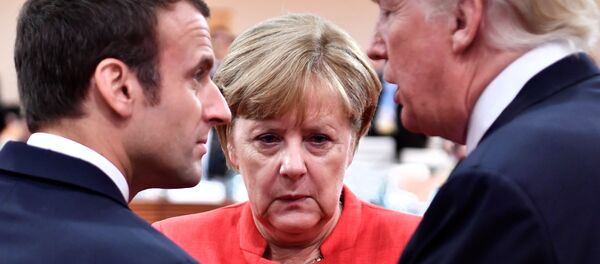Kristian Rouz — The EU's economic and financial committee expressed its harsh criticism of the US President Donald Trump's economic policies, saying that the rise of the American protectionism and supply-side reforms are poised to undermine the stability of global trade. The US' shift toward an export-driven economic model, the EU says, could do significant harm to the international economic ties and suppress the global growth outlook.
The EU's report comes amidst the rise in the US' exports in recent months, especially in manufactured goods and the hi-tech sector, which threatens Germany's foreign trade. Germany has been the European economic powerhouse for at least the past 10 years due to its foreign trade surplus driven by the global demand for high-end industrial products, machine parts, and technology.
Now that the US is becoming a more prominent competitor to Germany, the EU is worried as its economic growth is greatly dependent on Germany's exports.
"The effects of that (Trumponomics) could be much more damaging than had been thought until now," an internal EU committee document read, as cited by the German press.
The reason that the Germans are concerned about US foreign debt is that the Deutsche Bunds, or the German governmental debt notes, are one of the world's most-attractive safe-haven assets — as are US Treasury notes. Now, with Trump's plan to go deeper into debt in the medium-term in order to finance the reforms, the Treasury value is poised to decline due to higher emission.
This will boost the yield and investor appeal of the US debt notes, complicating the German borrowing effort, which might compress Berlin's ability to finance its own budget obligations.
"The decline in international investments is a possible vulnerability," the EU statement said.
Earlier this month, Eurozone's chief finance minister referred to Trump's planning as "more realistic and sensible" that many other economic strategies currently considered across the globe after nearly a decade of a very slow economic recovery.
EU's Jeroen Dijsselbloem said that whilst there are still some concerns over the possible global spillovers of Trump's agenda, its overall perception leaves enough room for moderate optimism.
"If the Americans no longer lead the free world then the Europeans should consider taking that lead," he said. It is "an opportunity for Europe to step further," Dijsselbloem added.
Meanwhile, in the UK, where most Brexit supporters happen to be Trump sympathizers as well, the US administration's lack of progress on the proposed reforms encourages the anti-Brexit sentiment.
As of now, however, there are still too many links between Albion and the continent, and Trump's US has little to offer in the global economy, which is still dominated by the trade patterns of the past eight years.
All that being said, the Trump administration currently benefits the EU ideologically, but in the longer run, a successful series of reforms in the US would reshape the global economic map significantly, and Brexit appears to be a proper long-term-adjustment strategy.
This is part of the reason the UK will protract on its Brexit decision for as long as it can.




